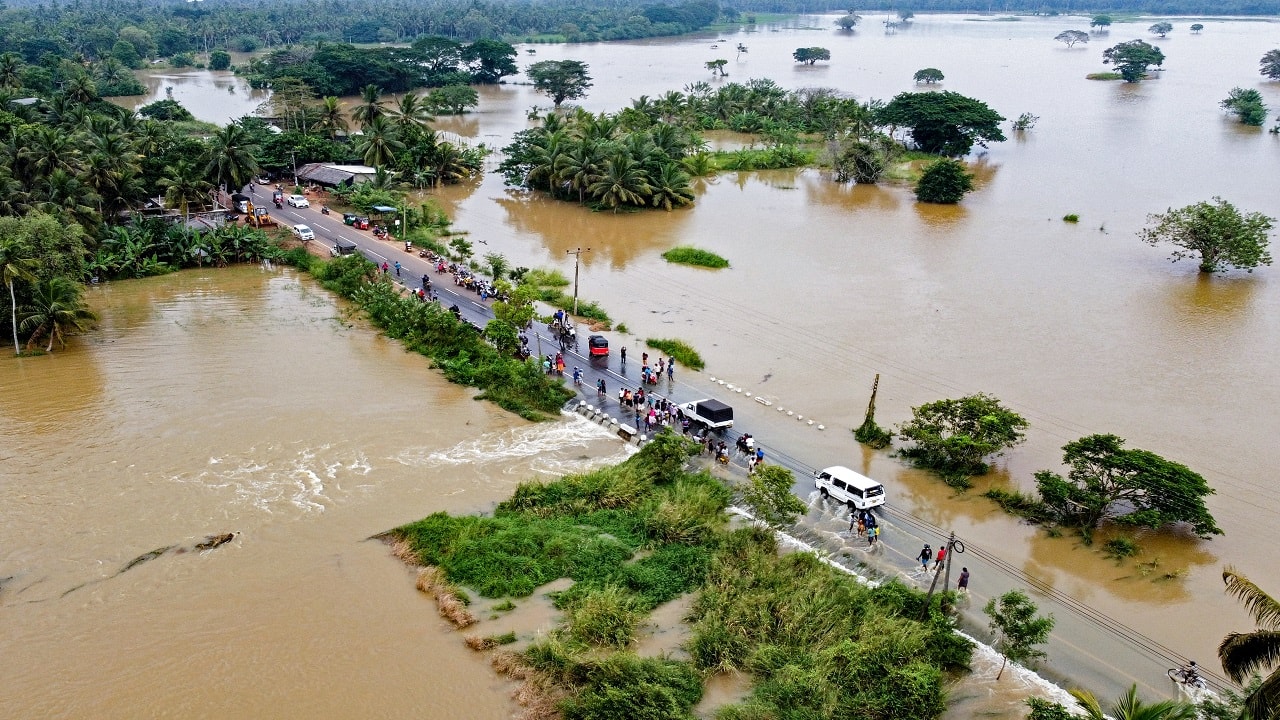 |
|
Cyclone Fengal's impact on Tamil Nadu, particularly Chennai, was significant, causing widespread disruption and necessitating large-scale relief efforts. The cyclone brought sustained winds of 70-80 km/h and waves reaching one meter in height, posing a considerable flood risk to coastal areas. The heavy rainfall, which intensified overnight, led to widespread waterlogging, causing significant disruption to daily life. Images and reports showed submerged streets, uprooted trees, and the inundation of hospital premises, illustrating the severity of the weather event. The government's response was swift, with the Chief Minister conducting reviews and ensuring the establishment of relief camps and the distribution of essential supplies. This proactive approach underscores the preparedness measures in place to mitigate the effects of the cyclone.
The city of Chennai bore the brunt of the cyclone's fury. The Greater Chennai Corporation mobilized a significant number of personnel and equipment, deploying 22,000 personnel and over 1,600 motor pumps to combat waterlogging in 134 locations. While the response was largely effective, with a quick clearance of fallen trees and smooth traffic flow in most subways, the closure of Ganesapuram subway due to railway bridge work highlights the challenges faced in maintaining infrastructure during such extreme weather events. The substantial inflows into reservoirs like Chembarambakkam and Poondi prompted residents in low-lying areas to take precautions, parking their vehicles on elevated roads and flyovers to protect them from potential damage. The combined efforts of civic workers, police, and fire rescue teams were crucial in ensuring the safety and well-being of the affected population. The significant impact on transportation infrastructure is also noteworthy. Suburban EMU train services operated at reduced frequency, while express and superfast trains faced only minor delays. Chennai Metro Rail services continued to operate, but advisories were issued regarding parking at flood-prone stations.
The closure of Chennai Airport from 12:30 pm to 7 pm significantly impacted air travel, causing widespread disruption to both domestic and international flights. Several flights were canceled, delayed, or diverted, underscoring the magnitude of the disruption caused by the cyclone. IndiGo Airlines, among others, temporarily suspended operations until weather conditions improved, highlighting the challenges faced by airlines in adapting to rapidly changing weather patterns. The impact extended beyond transportation, as roads across the city were largely deserted, and authorities were forced to close access to Marina and Mamallapuram beaches due to rough sea conditions. In response to the severe weather, the Tamil Nadu government declared November 30 a holiday for educational institutions and urged IT firms to enable work-from-home arrangements to ensure the safety and well-being of their employees. Despite the challenging conditions, essential services such as milk supply and power remained largely unaffected, showcasing the resilience of the infrastructure and the preparedness of service providers. The relocation of at least 471 people to relief camps speaks volumes about the scale of the displacement and the crucial role of these centers in providing shelter, food, and essential necessities to those affected by the cyclone.
The incident highlights the vulnerability of coastal areas to the impacts of cyclones and the need for robust disaster preparedness measures. The effective coordination between various government agencies, civic bodies, and emergency services played a crucial role in minimizing casualties and damage. The rapid response, including the establishment of relief camps, the deployment of personnel and equipment, and the provision of essential services, demonstrates a level of preparedness that proved critical in managing the crisis. The disruption to transportation and essential services serves as a reminder of the far-reaching economic consequences of such natural disasters, impacting businesses, industries, and individuals alike. The focus on ensuring the safety of residents, including the closure of beaches and the declaration of holidays for educational institutions, reflects a proactive approach that prioritized public safety. The experience of handling Cyclone Fengal provides valuable lessons for future disaster management strategies, emphasizing the importance of early warning systems, timely evacuations, and collaborative efforts to ensure the safety and well-being of the affected population.
Source: Cyclone Fengal nears Puducherry: Heavy rains lash Tamil Nadu, hit flight ops in Chennai
